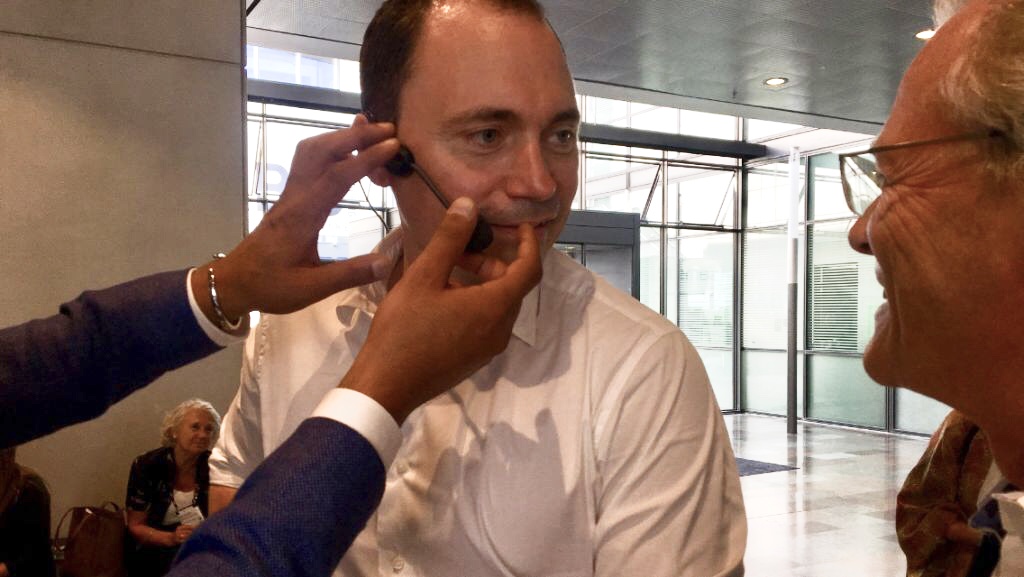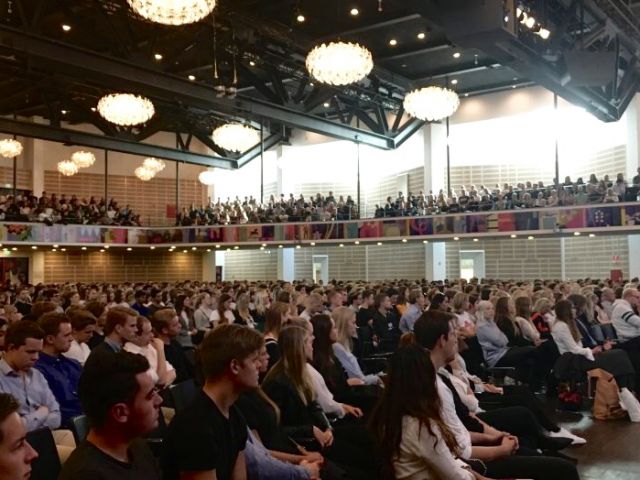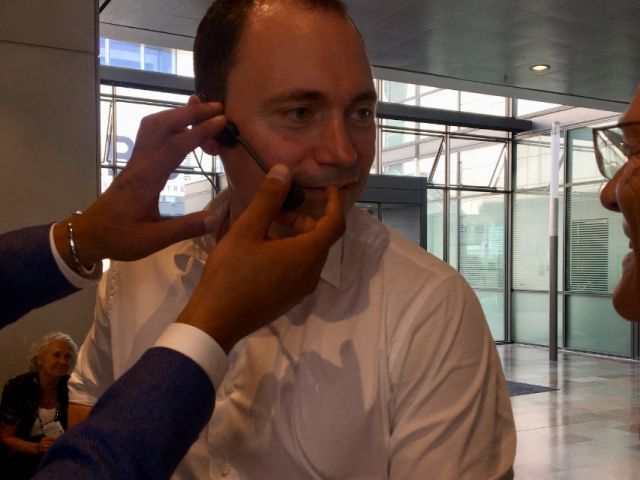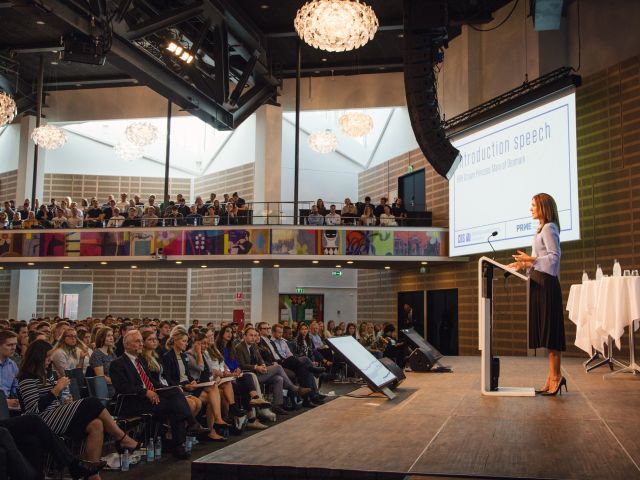Minister wants to strengthen students’ digital competencies

The Minister for Higher Education and Science, Tommy Ahlers, wants to have reflections on new technologies incorporated as a part of curriculum. (Photo: Mette Koors)
“Digital technologies will change the way we work,” says Tommy Ahlers, Denmark’s Minister for Higher Education and Science. Therefore, he has called on all universities to exchange best practice on using digital technologies in teaching and how they pass on digital competencies to students.
Tommy Ahlers, the Minister of Higher Education and Science, wants students from Danish universities to be one step ahead when they graduate and enter the job market.
According to him, digital technologies will rapidly change how we work in the near future and students need to be prepared for this. Therefore, he has launched a call to action, asking universities, teachers and students to share best practice when it comes to incorporating digital technologies in teaching and digital technology knowledge within specific fields.
“No one knows the future. However, I do believe that digital technologies will change the way we work,” says Tommy Ahlers to CBS WIRE and continues:
“It is important that the educational system prepares our youth for that change. We need to be better at understanding the potential and shortcomings presented by new technologies like big data, machine learning, artificial intelligence, robots, and so on.”
The idea is to collect all best practice into a plan of action on how to give students the best competencies for navigating a job market that is influenced by digital technologies.
“We will need people to add value through broad competencies such as creativity, problem solving and critical thinking coupled with an understanding of new technologies that are relevant to their profession. This combination will give Denmark’s graduates a solid footing when they start their careers,” he says and gives concrete examples of the influence of new technologies.
“Blockchain technology and better use of data and artificial intelligence hold the potential to transform the shipping industry – just look at the projects Maersk is working on right now. In addition, automation and robots are likely to change global trade patterns and supply chains in the coming years, which also touch on the core of shipping,” he says.
My hope is that insights and reflections about new technologies will be an integral part of any curriculum at our higher educational courses
Tommy Ahlers
During the autumn, Tommy Ahlers will have roundtable meetings with people from the education sector to collect input from different universities and schools, which will be published in a catalogue for inspiration. All this will lead to a plan of action, which is expected to be published in February 2019.
“I hope, that by launching my call to action, we can establish a national framework for strengthening the focus on the value of digital competencies and digital learning through exchanging best practice and ongoing dialogue between the ministry and the institutions,” says Tommy Ahlers.
One size doesn’t fit all
Besides transferring digital competencies to students, the plan of action also aims to improve teaching through digital technologies. Tommy Ahlers, however, points out that the plan of action is not meant to be a one-size-fits-all solution.
“In many ways, higher education institutions are already incorporating new digital technologies into the curriculum and as a learning tool. But there’s not a one-size-fits-all solution regarding digital technology in teaching – that’s why I have encouraged people to contribute with ideas and experiences,” he says.
At CBS, some teachers have had success after removing screens during lectures and presentations, as their experience is that the screens distract the students. But that is in fact also a way to incorporate the digital technologies, says Tommy Ahlers.
“Removing screens and PowerPoint presentations from the classroom completely like some do at CBS is also – in some aspects – an awareness of new technology. It has to be used in the right way and in the right situation,” he says and adds:
“My hope is that insights and reflections about new technologies will be an integral part of any curriculum at our higher educational courses.”



































































































































Comments